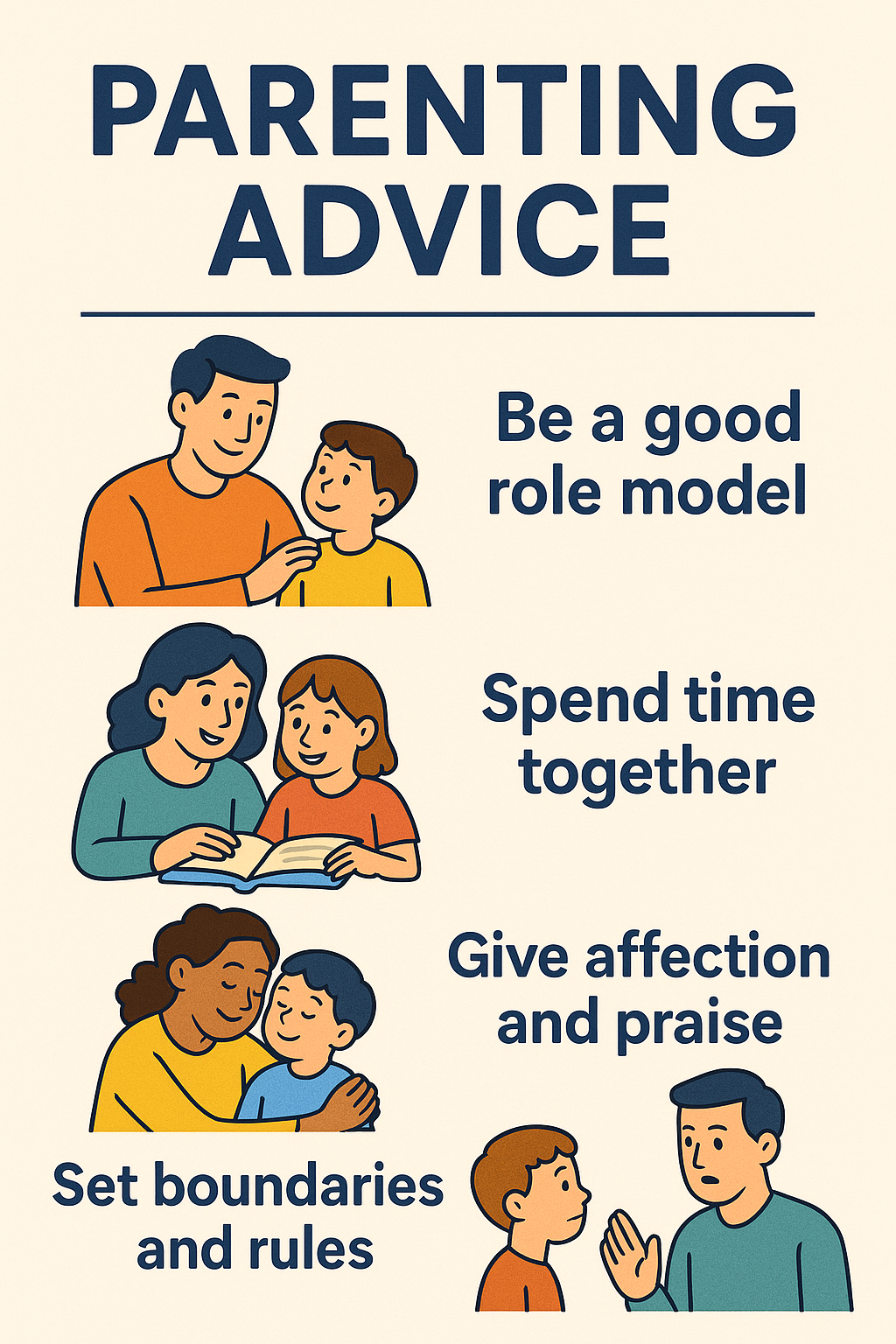1. Provide Structure and Consistency
- Set clear rules and expectations.
- Maintain routines for meals, bedtime, and homework.
- Enforce consequences consistently.
2. Communicate Effectively
- Listen actively to your child.
- Use calm, respectful language.
- Encourage open discussions without judgment.
3. Model Positive Behavior
- Demonstrate honesty, kindness, and responsibility.
- Admit mistakes and show how to correct them.
4. Encourage Independence
- Allow age-appropriate choices.
- Teach problem-solving and self-discipline.
5. Promote Emotional Intelligence
- Help children identify and express their emotions.
- Teach empathy and coping strategies.
6. Balance Discipline and Affection
- Use positive reinforcement more than punishment.
- Set boundaries with love, not anger.
7. Support Learning and Curiosity
- Read with them regularly.
- Encourage questions, creativity, and exploration.
8. Prioritize Quality Time
- Engage in daily meaningful activities.
- Show interest in their world—school, friends, hobbies.
9. Monitor Technology Use
- Set screen time limits.
- Guide online behavior and digital literacy.
10. Take Care of Yourself
Seek help when needed—parenting is challenging.
Manage your stress and model self-care.

